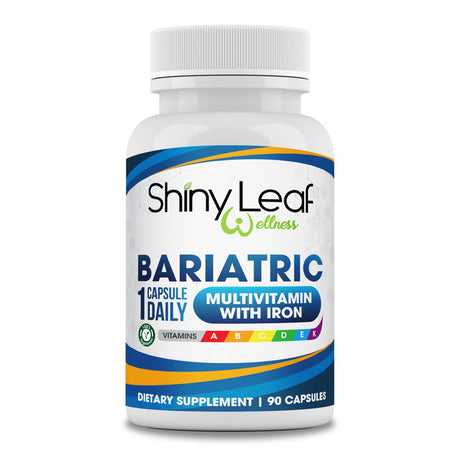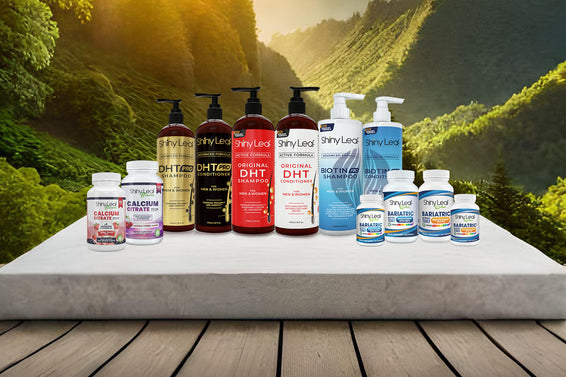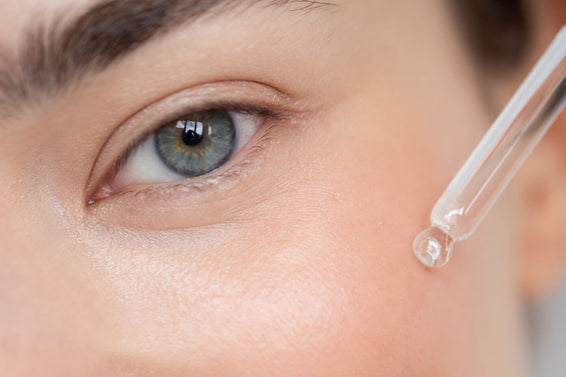Wellness Guide
We often hear in health talks whether on television, the internet, or in classroom discussions the phrase that “health is wealth”. It is absolutely true and important that we always look after ourselves to keep us healthy. But more than being healthy is being well. Wellness goes beyond the absence of ailments and diseases. It’s a holistic and multidimensional view of a person’s state, with different life aspects as angles.

In looking after your wellness, the first step is to understand fully what wellness is and its components. This Shiny Leaf guide will give you the complete lessons you need to learn to be able to identify wellness from health. There are “8 Dimensions of Wellness” you need to be familiar with and know how to optimize each dimension. Achieve your best self with these lessons and tips which you can apply on your daily practice of healthy habits. The end result is always to improve your lifestyle so you could live a happy and more fulfilling life!
What is Wellness?
Wellness is a constant and consistent process of self-awareness and making better choices to improve our life. It involves conscious decisions displayed in our healthy habits on a daily basis to attain a better physical and mental well-being. To be well is not just to survive, but to thrive in life!
Wellness is a mindful act of looking within you, assessing your personal condition in terms of physical, mental, and emotional state, then consciously making decisions to tweak your weak spots. Developing your habit of mindfully looking after your wellness helps you build strength and resilience to enable you to survive and thrive amidst life’s challenges. Wellness is always positive and encouraging. It is a way of pushing ourselves to do better, to be better in a multifaceted way.

Health and Wellness: What’s the Difference?
To better understand the meaning of wellness, it is important to understand first how it is linked to health. Many people confuse themselves and use these terms interchangeably to refer to the other.
The World Health Organization defines health as a “state of complete physical, mental and social well-being and not merely the absence of disease or infirmity.”
Conversely, wellness is defined by the National Wellness Institute as “an active process of becoming aware of and making choices toward a more successful existence.”
To put it simply, health is a state of being, whereas wellness is the act of healthy living. While health refers to your physical, mental, and social well-being, wellness aims to enhance all these areas. In short, wellness is the action while good health is the desired outcome.
Remember that wellness is always a matter of choice. It’s your way of constantly improving towards your optimal state of a healthy and fulfilling life. It involves several actions you must willingly apply to your daily lifestyle to improve. It is always a work in progress. Wellness never stops.
While health generally refers to a person’s physical, mental and social state, wellness looks into various factors that can affect your overall health including relationships, nutrition, fitness, and the environment you live in. Wellness sums up all aspects in your life that can affect your health or trigger development of a health condition.
READ MORE: Lifestyle Change
8 Dimensions of Wellness
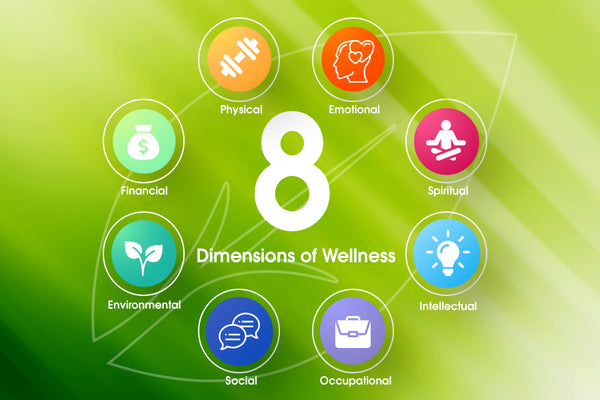
Wellness is the integration of body, mind, and spirit. Everything we do, think, feel, and believe has an effect on our overall state of being. In this guide, you will learn about the 8 dimensions of wellness—what are their functions, how to assess each dimension, and how do you keep each dimension in good state?
The National Wellness Institute originally established 6 dimensions of wellness. A popular model adopted by most universities, as well as private and public health programs includes these 6 dimensions:
- Physical
- Emotional
- Spiritual
- Intellectual
- Occupational
- Social
With continued modernization and technological developments happening globally, life has become more complex, leading to more global concerns. Therefore, two more dimensions to wellness have been added—the Environmental and Financial wellness.
All 8 dimensions of wellness are vital and are interrelated to each other. Assessing each dimension of wellness in our lives help us build a holistic sense of well-being and fulfillment. Take a look at each dimension and find out how they affect you and your health.
Physical Wellness

When you are healthy and look good on the outside, you think and feel good on the inside. This is because physical health can affect your emotional and psychological well-being and vice versa. If your physical body is not strong enough to withstand environmental adversities, you could easily get sick and compromise your health.
Physical wellness involves maintaining a healthy body and seeking medical help when needed. Getting proper nutrition through proper diet and exercise are key to staying in shape. Consume food and beverages that enhance good health rather than weaken it. Avoid detrimental habits like smoking, too much alcohol, and drug abuse. These bad habits can take a toll on your body and cause chronic diseases such as cancers.
Choose to eat healthy stuffs like vegetables, fruits, nuts, and lean meat that are rich in vitamins and minerals you need. You can take multivitamins regularly to help support your body to avoid nutritional deficiency.
Emotional Wellness
To become emotionally well is to be able to understand your own feelings and cope effectively with your surroundings. The emotional dimension considers your ability to remain calm and optimistic amidst complicated situations.
The key to emotional wellness is mindfulness. Study yourself and be mindful of your stress triggers. Learn how to not suppress them but instead, try to manage them. Taking a break, have a breathing exercise, then asking yourself logical questions can help you determine whether these triggers are worth stressing about.
Sometimes, situations that are new and out of our comfort zone can be stressful. But when you recognize them as learning experiences, you will develop your inner strength and grow. The main idea is to be optimistic with the things happening around you rather than be consumed by it.
Part of emotional wellness is considering your feelings, thoughts, and behavior before arriving at personal choices rather than deciding on impulse. Lack of emotional wellness could lead to sad feelings, which could develop into psychological disorders such as depression.
READ MORE: Wellness and Lifestyle
Spiritual Wellness

A person’s need to find meaning and purpose in life falls under the third dimension of wellness, which is spiritual wellness.
Both your good and bad experiences matter. As you go through the journey of life, you encounter hardships, feelings of doubt, fear, and disappointments. Sometimes life smells like pure bliss. You engulf yourself in a feeling of sheer pleasure, joy, and success. These are all important experiences that help shape you as a person. Every heartache or happy moment hone your character.
To be spiritually well is to have your actions agree with your beliefs. This means you have your own way of viewing the world, based on past experiences. The spiritual aspect of wellness reminds us to always stay true to ourselves as we seek our purpose in life.
Intellectual Wellness
Learning and problem solving is a constant process. We encounter thoughtful situations and new ideas where we need to use our minds every single day. Intellectual wellness is all about stretching your mind rather than being stagnant and unproductive.
By becoming more curious about your surroundings, you open your mind to learning opportunities. This involves keeping abreast with current issues and ideas. This way, you equip yourself with knowledge and skills on how to deal with life situations. With constant practice, you learn the skill of identifying potential problems and coming up with action plans based on available resources beforehand. Therefore, you’re ready with preventive measures than wait and worry later.
Occupational Wellness

Occupational wellness is about finding joy in your job or anything you do for work. Whether you are employed or you have your own business, if your occupation in life does not bring you happiness and personal satisfaction, then there must be some adjustments you need to take.
It’s either you are in the wrong business or you are doing a job that is not in line with your passion or skills. Assess yourself internally by simply asking questions that will determine whether or not you need to leave a job or not.
Do you feel happy with your accomplishments at work by the end of the day? Do you take pride of what you are doing? Do you appreciate yourself contributing to the success of the team?
If a person is unhappy with what he is doing in life, then it will lead to frustrations. Depression may cause heart diseases, insomnia, and stomach problems. To be occupationally well is to be able to contribute your unique gifts, skills, and knowledge to work. Doing so can be both personally meaningful and rewarding.
Social Wellness
The idea that we are all interconnected with each other and nature is the main focus of social wellness. Giving time and effort to contribute to the environment and community helps improve your social connectivity. You can join movements or activities with efforts to protect nature.
On a smaller scale, try to make that willful choice of connecting to the people around you. This will help enhance your personal relationships, friendships, and help build better communities.
Social wellness can be summarized to one word “selflessness”, as you prioritize common welfare over self-centered intentions. As a result, we live harmoniously with others and the environment. As you get involved, you become more aware of your importance to the society.
Environmental Wellness

Being aware of what is happening to the earth and demonstrating your responsibilities to the environment are part of environmental wellness. It involves your way of life that creates harmony with the earth and minimizes harm to the earth. You can show you care through good daily habits that help protect and conserve the environment.
You can be involved in socially responsible activities or practice these simple tips:
- Conserve water
- Minimize use of chemicals such as pesticides
- Reduce, reuse, and recycle wastes
- Stop the use of plastics
Financial Wellness
Financial problems could be a major cause of stress for many. And we know that stress has a lot of negative impact to your body. You may struggle with weight, suffer from insomnia, or feel body aches due to stress.
Financial wellness is having the ability to manage your resources properly so you can live within your means. This involves making informed decisions when it comes to your money and investments. You must set realistic goals and learn how to identify your priorities. A nice tip would be to save money so you can have resources at hand during emergencies.
READ MORE: Holistic Health
Guide to Basic Health and Wellness Needs
In every aspect of wellness, there are important things and practices you need. These are key elements that will support you in your journey towards holistic wellness.
Food
Food is a basic human need. You need food for energy so you can go about our daily activities. Food nourishes your body with vitamins, minerals, and nutrients that support growth and development. It fuels you for strength, brain function, defense against viruses and bacteria, and supports other important body functions.
Most of your health condition is affected by the type of food you eat. There’s a saying that “you are what you eat”. That means consuming a lot of unhealthy food often results to health problems.
Soda, processed meat, fast food, canned goods, and other unhealthy stuffs in the market may contain a lot of harmful ingredients and preservatives. Too much of bad chemicals entering your body causes various health concerns such as tumors, cancers, heart problems, diabetes, and other health issues.
Make the conscious decision of choosing the right food for you. The least processed a food is, the better. Go for fresh meat or fish instead of processed or canned goods. Add more vegetables and some juicy fruits on your diet to help in digestion and strengthen your immune system.

Nutrition
People have different daily activities and our bodies have different nutritional needs. While the food you eat provide you with nourishment, sometimes consuming food may not be enough. This is especially true for people who naturally or have developed nutrient deficiencies.
Some of the most common nutrient deficiencies are iron, iodine, vitamin D, vitamin B12, calcium, vitamin A, and magnesium. While each type of nutrient deficiency has its distinct set of symptoms, here are some reasons you might need to get a checkup for nutrient deficiency:
- Tiredness
- Muscle weakness
- Soft bones
- Aches and pains
- Irritability
- Depressions
- Acne
- Brain fog
Even if you are very health-conscious about your diet, busy schedules and the demands of life can make it hard to get all the nutrients you need from diet alone. If deficient from any nutrient, you may want to take a supplement that specifically provides you with the nutrient you need most.
READ MORE: Hair Food
Healthcare and Medicine
Part of your wellness is knowing when to get medical help. Whether it is consultation or a medical emergency, it is important that you have access to a doctor when you need it. It is also your part to look after yourself and have the discerning judgement when your body is showing signs that you need medical attention.
Your body often gives you hints when something is wrong inside. When you notice some physical manifestations like lumps or persistent pains, have the courage to see a doctor as early as possible. As cliché as it sounds, prevention is always better than cure.
Whenever you feel sick (a simple headache or cold), having medicines readily available is best. Or if you may have special conditions like diabetes, stick to your regular intake of medications to support your health needs.
Social Connection

No man is an island—that means you cannot live alone. You need people around you to have a healthy life because social connections are necessary at improving ones physical and mental health. This includes your family, friendships, romantic relationships, sexual relationships, connections at work, and involvement in the society.
When you have problems, you can tell it to somebody you trust. Talking to someone whom you can relate to or to someone who understands you is healthy. It helps uplift your spirit whenever you are down. Take at least 10 minutes out of your day to call a friend or a loved one that matters to you. The support of family members and friends helps motivate an individual to become successful in anything in life.
Exercise
Have you heard of “happy hormones”? Did you know that a regular exercise can produce happy hormones and make you feel better about yourself?
Yes, natural chemicals can be produced inside your body through physical activities and affect you emotionally. Dopamine, oxytocin, serotonin, and endorphin—or DOSE in short—are the brain chemicals produced when you exercise. Together, DOSE create optimistic brain states that make you feel elated and want to perform better.
Try a 20 to 30-minute exercise daily as a routine and see how it sets you in a good mood for the day. Notice the positive change with how you deal with people around you, at the workplace or at home.
READ MORE: Fitness
Sleep

Another very important thing you need for wellness is sleep. Your body recuperates when at complete rest. It performs better in absorbing the nutrients from the food you consumed over the day. This is the best time when your body does its own work of repair and development. Proper and enough time for sleeping gives you a handful of benefits.
- Keeps your heart healthy
- Reduces stress
- Keeps you active and alert during daytime
- Improves your memory
- May help with weight loss
- Reduces risks of depression
How to become a better Sleeper?
Here are a few tips:
- Perform quiet and calm activities before going to bed such as a breathing exercise.
- Listen to mellow music or just play it in the background as you close your eyes.
- Diffuse essential oils that promote better sleep such as lavender oil and chamomile oil.
READ MORE: Relaxation
Mindfulness
Mindfulness is a mental process of giving full attention to what is happening, what you are doing, and your surroundings. The practice of meditation helps you find that focus and balance in your life.
Developing the habit of mindfulness doesn’t have to be so complicated. You don’t need to change who you are. It’s just a way of living. By tapping into your own thoughts, you become more aware and in control of how you react to stressful situations. Mindfulness is good for your body and brain, as it helps cut down unnecessary stresses in life.
Daily Wellness Tips to Live Better
As you go through your own journey towards wellness, you may need to go through some lifestyle changes. Change can be sometimes difficult so try to focus on your goal. You know that it’s going to make you better. This way, you can be motivated to keep going.
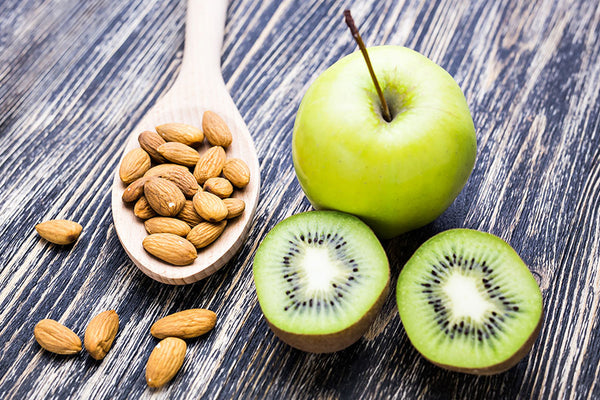
Here are a few practical tips to get you started:
- Start with small changes. If you are feeling overwhelmed by the sudden shift in your way of living, try to take things one day at a time. Make simple and healthy choice on a daily basis rather than pressure yourself to make a change overnight.
- Set up meetings with your friends and family. A dinner at home or meet up in a park are great options. In the flesh gatherings could be hard to schedule with your loved ones especially if everyone is busy. But this is a very special, more intimate way to reconnect rather than via a video or phone call.
- Pack nutritious food in your bag to keep as a handy snack. Try an apple or banana. They are not only delicious but tummy-filling too! This will help you avoid vending machines or fast food chains when you’re on the go.
- Drink more water. Water is a universal liquid that having plenty of won’t hurt. Drink at least 8 glasses of water a day. Start your water therapy upon waking up in the morning. Drinking a glass of water is a great way to start your day because it helps stimulate body functions. Generally, drinking water boosts metabolism, prevents dehydration, cleanses your colon, and prevents constipation. Water also help hydrate the skin to keep it youthful and glowing.
- Spend time outdoors and take time to rest. Stress can trigger early aging and cause some serious illnesses. Make sure you give yourself time to reboot by taking a break in between working hours. Outdoor activities on weekends such as hiking, camping, or a walk in the park are perfect ideas for spending holidays or days off.
READ MORE: De-Stressing





